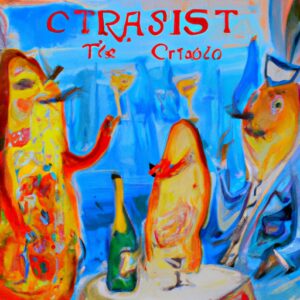Depending on who’s saying it, “ti amo” may be the phrase you want to hear the most or the least in the world.
Two very powerful words, aren’t they? They’re spoken in hundreds of songs and movies, and they can turn a person’s life upside down. How is that possible?
Once you know it, the answer seems quite logical: they are words of love. The most important ones, indeed.
Here’s the meaning of ti amo.
The literal (and romantic) meaning of TI AMO
If you’re just looking for its literal translation, ti amo means “I love you” in Italian. However, there are a couple of important things worth saying about it.
From a grammatical point of view, this phrase is formed by a dative personal pronoun (ti) and the second-person singular of the verb amare to love.
But most importantly, this phrase refers only to a specific kind of love.
In my post about the meaning of amore, I mentioned how Italians would never say “ti amo” to someone other than their partner without being ironic or sarcastic.
Why is that so? Well, because there is more than one way to love a person.
Ti amo indicates a type of love that includes romantic or sexual feelings. It is the love of lovers, the kind that poets have sung about for centuries in all cultures.
It expresses an interest in being with one’s partner, living together, and building a future.
For all the other types of love, there’s another way to say “I love you“.
Trivia: “Ti amo” is the title of Berlin’s wedding song in the popular Netflix series Money Heist. The song was originally a summer hit sung by Umberto Tozzi in 1977 and is now considered one of the most famous Italian love songs. Among its genre, it has a particular record: the words “ti amo” are repeated 53 times over a 4-minute span.
The difference between TI AMO and TI VOGLIO BENE
There is also a type of love made up of other tender or affectionate feelings.
It is no less intense than the former, but it is devoid of romantic or sexual connotations.
It’s the kind of love you can feel for your relatives, sons, and daughters, friends or pets – anyone who plays an important role in your life.
The right way to express your love for them in Italian is by saying ti voglio bene.
At first glance, this might seem like a formal expression, and it is often perceived as weird by non-native speakers.
But if you understand its meaning, you’ll see that it’s a beautiful expression of unconditional love.
Ti voglio bene means “I wish good things / the best for you“. With that, you are implying that you wish for the other one to be happy no matter what.
There’s nothing reductive or formal in it. As a matter of fact, lovers usually tell each other both ti amo and ti voglio bene.
The only exception
So, basically:
- ti amo = romantic love
- ti voglio bene = aromantic love
There is only one exception to this rule: it is when you’re not speaking about people or animals.
When you’re talking about how you love things like food, art, forms of entertainment, hobbies, and so on, the only right verbs to use are amare and adorare.
Amo la pizza di Gigi. La mangerei tutti i giorni!
I love Gigi’s pizza. I would eat it every day!
Ho adorato la serie Netflix di Zerocalcare!
I’ve loved Zerocalcare’s Netflix show!
Amo suonare la chitarra.
I love playing guitar.
Other romantic phrases
Ti amo is not the only way to express romantic love in Italian. Here are some other phrases you can use:
- sono innamorato di te = I’ve fallen in love with you;
- sono pazzo di te = I’m crazy about you;
- ti amo con tutta l’anima = I love you with all my heart and soul;
- sei tutto per me = you are everything to me.
The list is endless, but these are the most common alternatives to ti amo. And how can you learn all the others?
How to learn Italian romantic phrases
Like any language, Italian has many expressions of romantic love that have spread through famous songs or movies. So, the best way to learn them all is to know the works from which they derive.
Love songs aren’t exactly my cup of tea, but if you want to know some of them, I recommend the aforementioned Ti Amo by Umberto Tozzi, Il Cielo In Una Stanza by Gino Paoli, Non Me Lo So Spiegare by Tiziano Ferro, and La Cura by Franco Battiato.
Of course, if you want to become more fluent, you can also check out our Italian courses. They are specially designed to teach you how to speak like a native in no time. 😉
And if you want to learn those expressions that are not usually found in textbooks, keep checking this blog. We publish interesting posts every week. See you soon!










One Response
TI AMO means “I love you” in Italian. It’s such a beautiful and romantic phrase. It’s always great to learn new languages and their expressions of love.